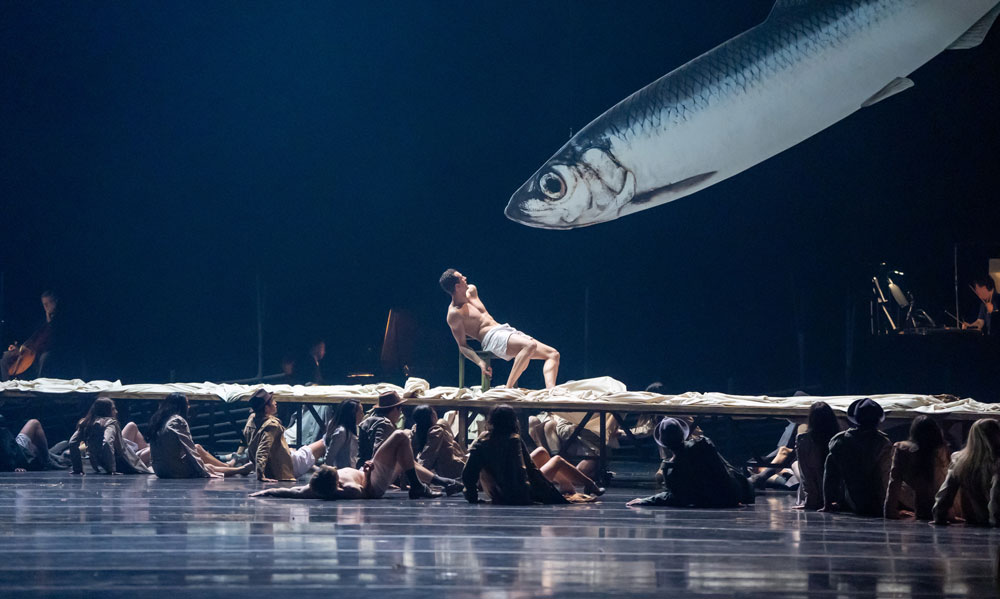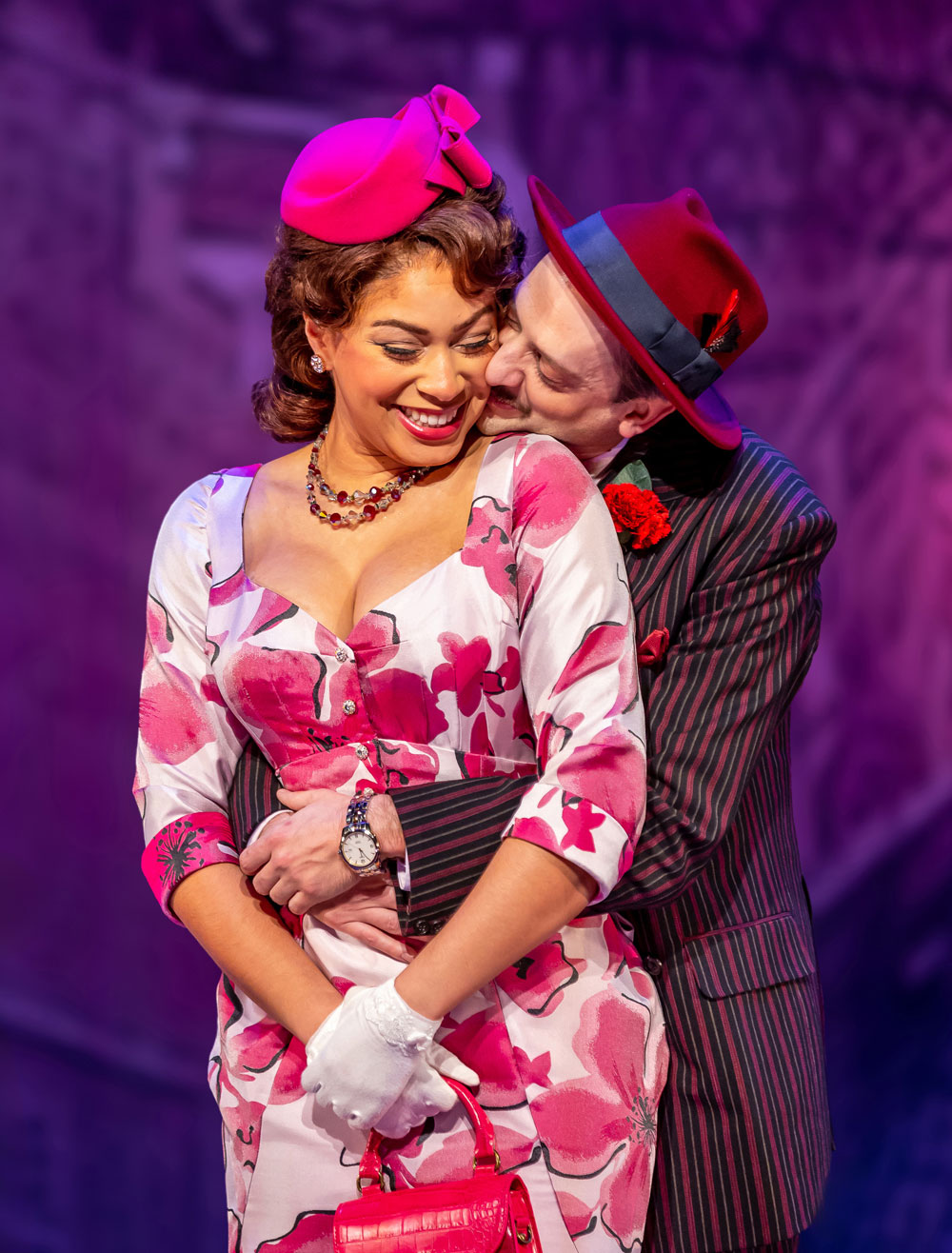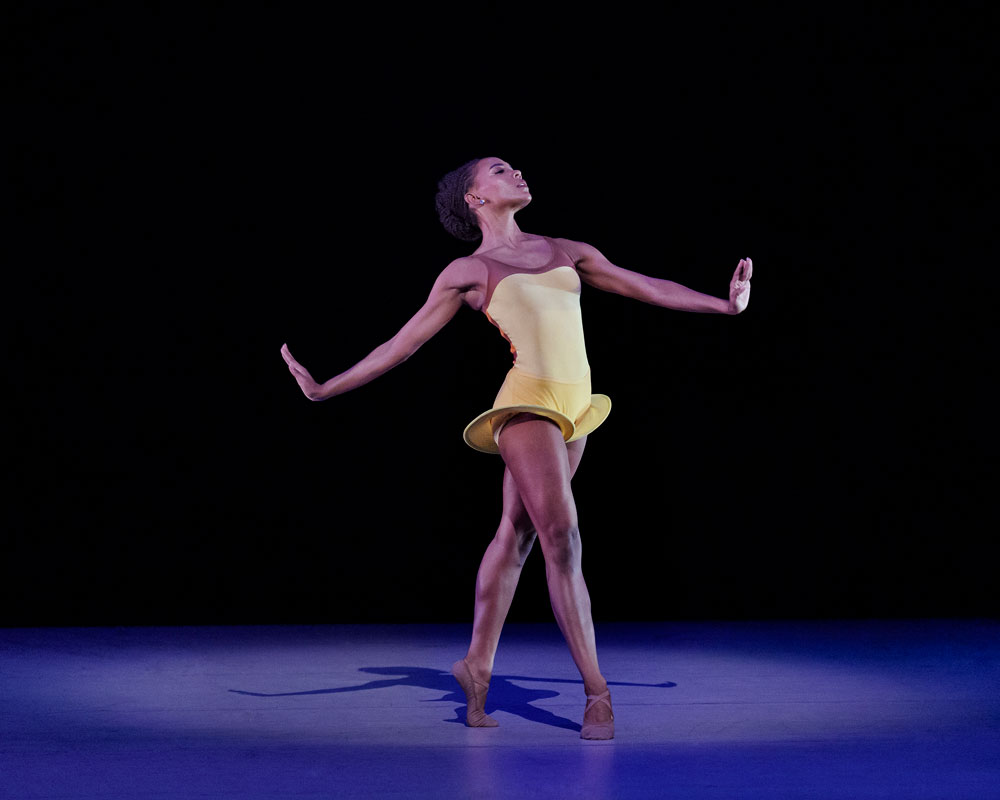
Even though our culture seems deluged with music megastars, we can only wait and see how many will maintain their resonance decades after they’ve taken their last bow. A half century after her death in 1975, the singularity of Mahalia Jackson’s voice and influence still course through our musical universe. Vocalist Tammy McCann, who usually concentrates her talents in the realm of jazz, well understands both Jackson’s and Gospel’s contributions to America’s musical heritage. That awareness led her to pursue an answer to the question, How would it sound to bring gospel and jazz together in synergy? Tammy McCann: Yes, Mahalia! Is the brilliantly conceived response.
Lush with sumptuous, incredibly arranged music, the concert’s Saturday night performance in the Music Institute of Chicago’s Nichols Concert Hall last weekend was both experiment and tribute; igniting enchantment as soon as it began. Featuring a four-person choir, a mini-big band comprising ten musicians and McCann as lead vocalist, luxuriant sound became the staple of the evening.
Radiating warmth and ingratiating charm, McCann explained how she was introduced to Jackson’s music and how it’s impact on her steadily grew. Through the decades just following WWII, Mahalia Jackson’s recordings seemed always to be playing somewhere in the tapestry of Black life all throughout the country. That voice would go on to be the first of its type to tour Europe and perform before Presidents. It was common for McCann to hear Mahalia Jackson as a child growing up in Chicago and to identify with both message and messenger. That familiarity and McCann’s deep respect for Jackson’s gifts became the buttresses that gave the evening’s program its potency and depth. Ms. McCann’s own voice as she sang her way through songs emblematic of Jackson’s style and meter held its own wonders.
The parents of both Jackson’s mother and father had been enslaved. That nearness to slavery could be heard in her singing. Jackson would talk about listening to music coming out of the Pentecostal church in her New Orleans neighborhood and recall how much it affected her. She remembered how “they had a beat, a rhythm we hold on to from slavery days, and their music was so strong and expressive.”
You could hear echoes of that sound in Yes, Mahalia!. Distinctive for its simplicity and power, Jackson’s performances always emphasized purity of expression. Usually accompanied only by a piano, and forgoing any vocal backup, she would use her voice to color every word with galvanizing meaning. McCann brought that same intensity of conviction to her tribute performance. She also showed how well she could linger in the contralto range and emulate the beautiful textures characteristic of the great Gospel icon. In her renditions of Come Sunday, Elijah Rock and How I Got Over, McCann didn’t attempt to mimic Jackson’s sound, but she certainly invoked the timbre, gravity and insight Jackson’s voice conveyed.
Enlisting the services of a jazz band and choir made this celebration of Mahalia Jackson and Gospel music transformative. Used somewhat sparingly, the choir’s harmonies during the first part of the program were light and constrained. Given more freedom after the intermission, J’lyn Hope, Laquisha Burries, Ken Davis and Noah Brown enjoyed greater latitude in displaying their vocal artistry; whetting the audience’s appetite for more of their contributions.
The band, directed by trumpeter Marques Carroll, stood shoulder to shoulder with McCann in this exceptional musical partnership. Despite their close kinship, gospel and jazz represent very different worlds. Beyond the distinction between the secular and the spiritual, gospel doesn’t possess the same passion for exploration that defines jazz. From the surface, they appear as opposites. And when you initially hear them together as you do in Yes! Mahalia, a dissonance is noticeable. The sensation fades quickly as you listened to how well the band’s instruments and McCann’s voice capitalize on the other’s strengths and beauty. That synergy and harmony McCann was striving for could be heard in the way Marquel Jordan’s tenor saxophone latched on to a note in McCann’s voice and stretched it out into an extended virtuosic solo. Similar moments of musical flexibility and excellence filled the concert. Evenly balanced to allow both vocalist and band to unfurl the full breadth of their capabilities meant there were ample opportunities to spotlight remarkable musicianship.
Originally performed in Tel Aviv three years ago, Tammy McCann: Yes, Mahalia! has already seen a bit of the world. Given its uniqueness and quality, there are many other places on the globe that would welcome its spirit and creativity.
Tammy McCann: Yes, Mahalia!
October 29th, 2022
Music Institute of Chicago
1490 Chicago Avenue
Evanston, IL 60201


